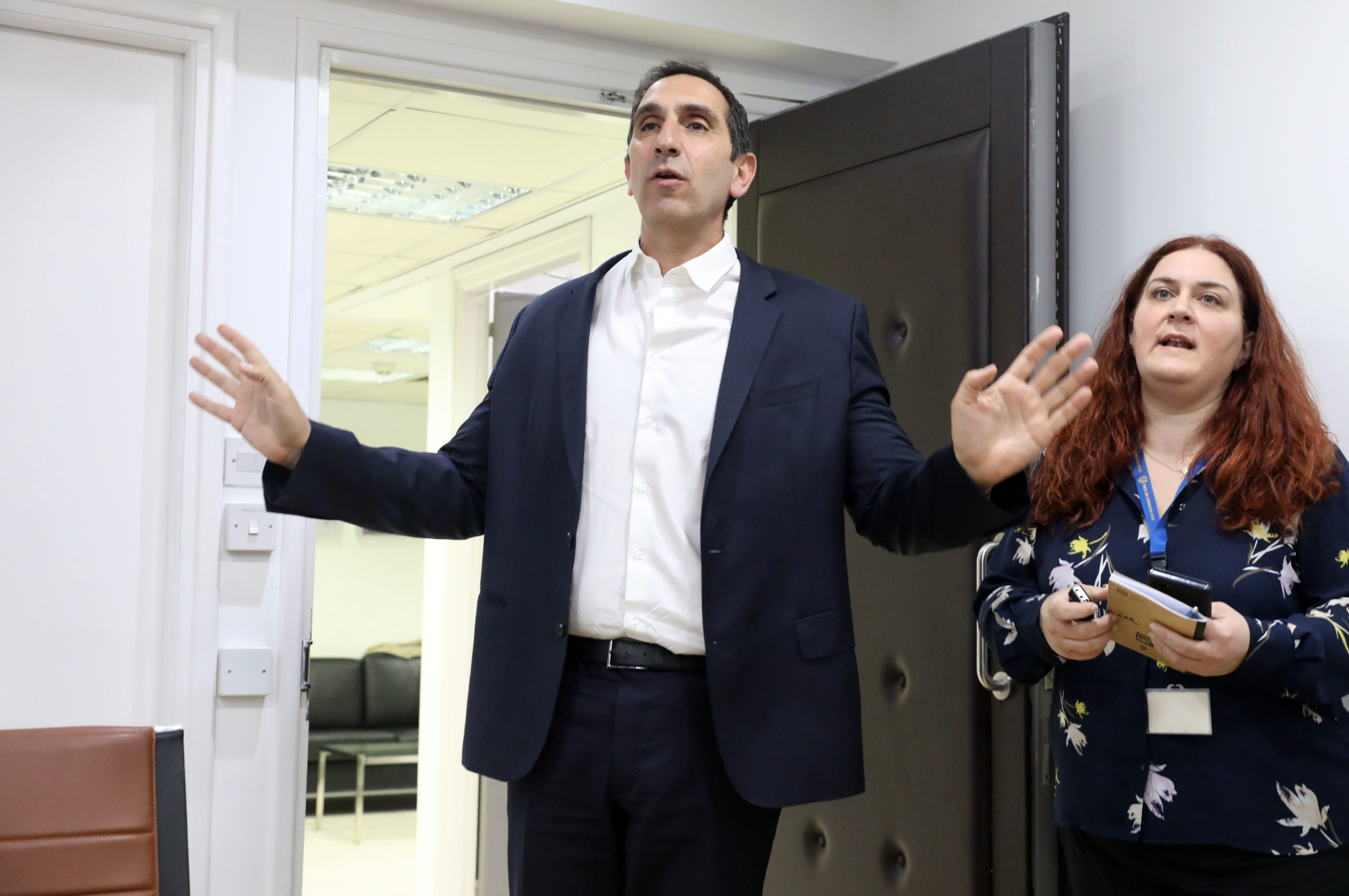Cypriots need not fear a second wave of COVID-19 in the community if they continue to adhere to social distancing and hygiene measures, said Health Minister Constantinos Ioannou on Friday.
Presenting the Ministry’s coronavirus success story, he urged the public to continue adhering to social distancing and hygiene protocols to fight off a possible second wave of COVID-19 infections.
As Cyprus is set to further ease restrictions to travellers on Saturday, Health Minister Ioannou said despite an expected rise in cases, imported or locally transmitted, if the community adheres to social distancing a second wave is unlikely.
Cyprus is to open its doors to travellers from 32 countries, adding another 11 to the list initially introduced when airports opened on 9 June.
Cyprus flatten the COVID-19 curve before allowing travellers from countries who would not need a coronavirus test.
As of Tuesday, Cyprus has kept cases at zero for three days running.
Evaluating actions taken by Health Services to tackle the pandemic in Cyprus, the Health Minister stressed that citizens must remain vigilant.
“Success of the roadmap to lifting restrictions largely relies on the responsibility of citizens, individually and collectively”.
He noted that the lifting of restrictive measures creates a new environment in which everyone is called upon to act with caution.
“The virus has not yet left the community, and everyone must take self-protection measures until the vaccine is found”.
“If we are all socially responsible, we have nothing to worry about.”
On the financial aspect, Ioannou said the pandemic has cost more than €[i]60 mln and rising.
He does not expect to see new cases, whether imported or locally transmitted.
“What was important however and different is that a potential new wave would find Cyprus prepared and wiser”.
Asked if mistakes and gaps were identified during the outbreak, Ioannou said that any mistakes and omissions that were initially observed, due to the fact that it was an unprecedented situation, have been rectified.
“Problems were quickly identified, and solutions were immediately introduced.”
He said there were practical difficulties that took some time to increase the capacity of Intensive Care Units, but in the end, Health Services managed to do so.










